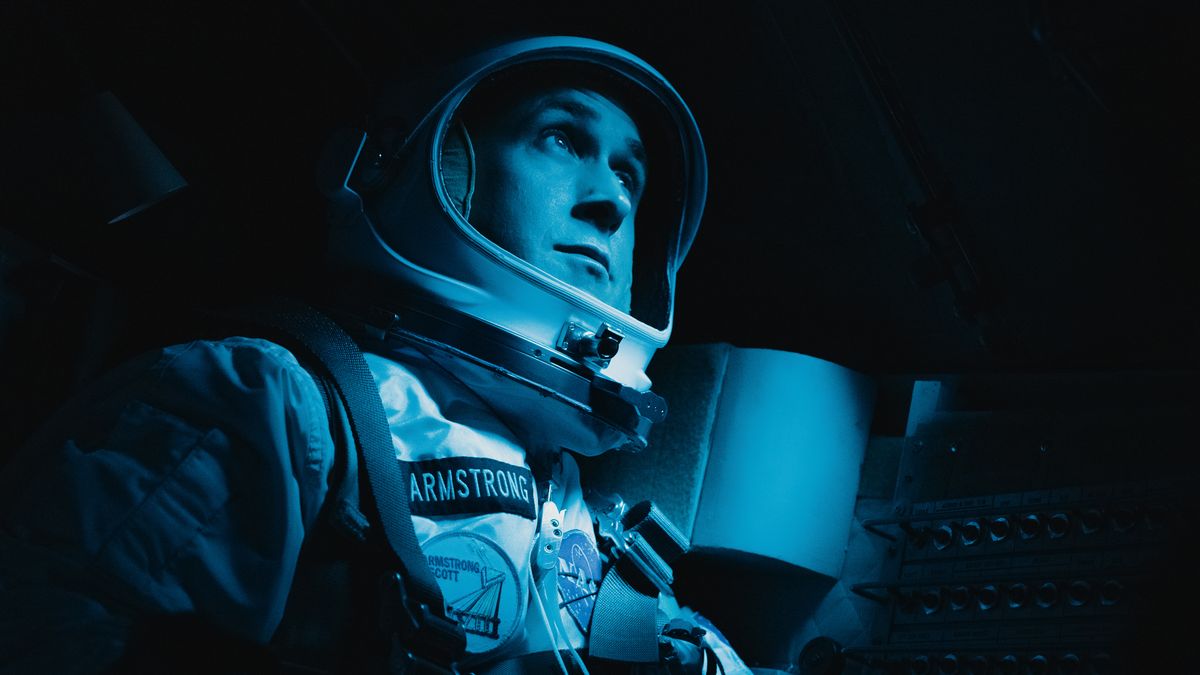Not exactly a biopic, nor a comprehensive account of the moon landing; First Man is a personal story about grief as both fuel and a drawback to Neil Armstrong’s professional pursuit that veers close to hagiography.
For a largely uncharted territory, space has proven to be well-trodden ground in film. From Alfonso Cuaron’s Gravity, which offered a uniquely visceral perspective into the sheer force of will necessary to survive above Earth, to Hidden Figures, which provided valuable insight into the overlooked behind the scenes work of female minorities at NASA, there have been no shortages of quality space films over the past few years.
For his fourth feature film, acclaimed director Damien Chazelle, provides his own addition to the space race by charting the life of Neil Armstrong in the years leading up to him becoming the first man on the Moon. While ostensibly a film about Armstrong, it would be remiss to call First Man a biopic. The film splits its focus between Armstrong’s family life and the intense weight his mission bore down on his loved ones, while simultaneously trying to glorify the magnitude of his achievement as a sort of hagiography. By trying to have it both ways, First Man feels conflicted and struggles to provide a fresh perspective on well-documented history.
Part of the problem lies in Armstrong’s inherent nature. As an introverted individual, Ryan Gosling’s performance comes off as accordingly cold and distant. He embodies Armstrong as a quiet, contemplative man who mostly keeps to himself and is singularly focused on the success of the mission. The blandness of Gosling’s performance may be misconstrued as shallow characterisation but he successfully communicates Armstrong’s stoic determination that was necessary for the lunar mission to succeed. The issue, however, is that the film never successfully matches his low-key nature with enough dramatic heft (particularly as the outcome of the lunar landing is well-known history), leaving long stretches of the story feeling dry and uninvolving.
In fact, most of Armstrong’s personality traits can be gleamed from his relationship with his wife, Janet Shearon, played with powerful force by Claire Foy. Without a doubt, the most effective dramatic scenes are the ones shared between Gosling and Foy. A dutiful housewife and loving mother, Foy’s Shearon is no pushover and she stands her ground against the boys club that is NASA. When Armstrong attempts to leave for the Apollo mission without saying goodbye to their sons, she confronts him emphatically and forces a family sit down. Her assertive nature clashes sharply with Armstrong’s nonchalance, and she offers a stark psychoanalytical counterpoint to him.
However, the film defers digging too deep into Armstrong’s psychological state by keeping the lunar mission in the forefront of the narrative and his family life as ancillary, in case it would lessen the reverence surrounding his achievement. You only get glimpses of his home life and the resulting fractured sense of characterisation is likely to leave you feeling more conflicted about who Neil Armstrong was by the film’s end.
The other part of the problem is that, as a retelling of the trials and tribulations of the lunar lading, the film is hardly an exhaustive account. Covering the time period from 1961, when Armstrong was an X-15 pilot, to the eventual Apollo 11 mission in 1969, the constant jumps in time leave little room for detailed recreations of both the physical and mental preparations that went into putting the first man onto the moon.
Moreover, certain contextual details of the time period are touched upon but quickly go by the wayside, such as one scene depicting African American musicians singing the lyrics of Gil Scott-Heron’s “Whitey on the Moon” which hints at a fascinating social-political subtext to the story that never arrives. Thus, those seeking a fact-based take are better off seeking one of the countless documentaries on the moon landing.
Instead, First Man exists in a middling space (pun unintended) where it’s easy to see the passion behind the film but hard to see its exact raison d’etre. It’s respectfully made, but perhaps too much so, seemingly content on re-treading past achievements by fairly conventional means.
Where First Man excels is in its more personal touches, in particular in its handling of grief and trauma, stemming from Armstrong’s personal loss of one of his children, as both fuel and a drawback to his professional pursuit. It’s a through line that is poignantly tied off in one of the film’s closing scenes and it’s this sort of nuance that feels like it offers something fresh to the story, despite its historical trappings.
Ultimately, while it’s easy to admire the craft behind the film and the respectful means by which it treats its main subject, First Man’s resistance to probe too deep into Armstrong’s psychology or to provide a fresh, modern perspective on well-documented history leaves it, too often, feeling lost in space.
Director: Damien Chazelle; Starring: Ryan Gosling, Claire Foy
Dominic Kwaczynski

